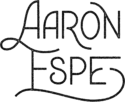Around 2007, my wife remembered a book she’d read in a college creative writing class called The Triggering Town by Richard Hugo. She gave me her copy, and honestly, I’m not sure I would have written many of the songs I’ve written without it. Although it’s about poetry, its lessons apply equally to songwriting and storytelling.
While searching my computer for information about the book, I stumbled upon a text thread where I recommended it to a friend. He had asked for feedback on his writing, and our conversation became a sort of case study of the book’s principles. Here’s the thread. Please note, I cleaned it up a little for the sake of clarity.
SW:
I had something written. Ponderin’. Maybe even a writing prompt exercise?
Care to give an honest critique?
Aaron Espe:
Send it!
SW:
“By example, you lead me
Now you need me
We’re sitting under an oak tree
The leaves in the air
Are as grey as your hair
The passing of time is getting harder to bear”
Tear it open. Rhyme, rhythm, phrasing… etc.
Aaron Espe:
Poem or song? Not sure?
Love the assonance of the long e sounds.
SW:
Not sure… so far, it’s just words.
Aaron Espe:
Lead, tree, leaves, me—I’d lean into that more.
Maybe try taking the speaker out of it?
SW:
Like speaking in third person?
Aaron Espe:
Yeah, maybe. Also, let the description talk for the speaker rather than having the speaker tell the reader what he’s feeling. Make sense?
Cut “getting harder to bear,” maybe?
SW:
Agree! That felt too cheesy.
Aaron Espe:
Also, try reordering some of it—break it into lines and move things around to see what happens. Like blocks.
SW:
Interesting! How do I avoid overcomplicating? From my understanding, try expanding on keywords? (Or no?)
Aaron Espe:
I’d cut unnecessary words. For example, “we’re sitting under an oak tree” could just be “under an oak.” You might even start the poem with “Under an oak.”
SW:
Woah!! You’re a genius!
Aaron Espe:
Under an oak / the leaves / grey as your hair / the passing of time—
Not quite there yet, but you see what I mean?
SW:
Yeah! It’s more sophisticated now!
Aaron Espe:
I love the imagery you’re creating—lean into that. Also, don’t try to control it too much; just have fun seeing where it takes you.
You MUST read The Triggering Town by Richard Hugo. You’d love it—it’s all about this process.
SW:
Man, I really underestimated your short-lyric songs. Saying so much by saying less is a SKILL.
Aaron Espe:
It’s kind of like painting—take all your knowledge from there and apply it to words. Honestly, writing poetry might be an amazing outlet for you—I can see you really getting into it. Don’t be intimidated (I was). There are lots of great forms and kinds to explore.
SW:
Do you already have a blog about letting go of concepts that aren’t working? I think you do, but I’m not sure.
How does it branch out? Idea >> concept >> words?? What’s your mental pipeline?
Aaron Espe:
Basically: thought → idea → concept → form (song, poem, etc.). But it’s not always sequential—it can change as you create. (I think that’s what I think, ha.) A concept is a spin on a familiar idea—that’s why puns work!
SW:
I’ve always wondered about that in songwriting! What comes first—the chicken or the egg? The words or the melody? I’m so amazed right now!
Aaron Espe:
Ha… but back to your poem: I think there’s a concept in there waiting for you to dig out. We’re all aware of the passing of time—but you’re hitting on it in new ways, creating a moment that makes readers reflect on their own lives.
*** END OF THREAD***
So there you go. If you’re exploring creative writing or songwriting, The Triggering Town is invaluable. It helped me embrace uncertainty in the writing process and trust that meaning often emerges as I work with language, much like a potter molding clay.
Love,
Aaron


